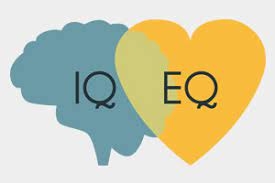- + New Debate
- Debate News
- About
- Debra AI More
frame
Howdy, Stranger!
It looks like you're new here. If you want to get involved, click one of these buttons!
DebateIsland.com is the largest online debate website globally where anyone can anonymously and easily debate online, casually or formally, while connecting with their friends and others. Users, regardless of debating skill level, can civilly debate just about anything online in a text-based online debate website that supports five easy-to-use and fun debating formats ranging from Casual, to Formalish, to Lincoln-Douglas Formal. In addition, people can improve their debating skills with the help of revolutionary artificial intelligence-powered technology on our debate website. DebateIsland is totally free and provides the best online debate experience of any debate website.
Communities
- 8.3K All Communities
- 254 Technology
- 1.9K Politics
- 679 United States
- 592 Global
- 65 Immigration
- 1.9K Religion
- 230 TV SHOWS
- 60 Movies
- 80 History
- 44 Work Place
- 476 Philosophy
- 411 Science
- 62 Earth Science
- 9 Books
- 101 Economy
- 34 Investments
- 14 Europe
- 10 Tea
- 7 Coffee
- 59 Sports
- 42 Products
- 283 News
- 13 Airplanes
- 33 Cars
- 851 General
- 9 Mafia Games
- 24 Art And Design
- 20 Space
- 50 Military
- 3 Premium Member
 DEBATE NEWS
DEBATE NEWS BREAKING NEWS
Trump trial live updates as defense ends questioning of first witness
Follow live updates as former President Donald Trump's criminal trial continues in New...
In this Debate
Which Is More Important: IQ or Emotional Intelligence?
Debate Information

Both intellectual quotient (IQ) and emotional intelligence (EI) are important in their own ways, but they serve different purposes.
IQ is a measure of cognitive ability that reflects intellectual functioning, such as language comprehension, logical reasoning, problem-solving, spatial relationships, and other forms of abstract thinking. It is an important factor in academic and professional success, as it enables individuals to understand complex ideas, learn quickly, analyze data, and make decisions based on facts and evidence. High IQ individuals are more likely to excel in tasks that require critical thinking, innovation, and strategic planning.
EI, on the other hand, is a measure of social and emotional competence that reflects a person's ability to understand, regulate, and express their own emotions as well as recognize, empathize, and respond to others' emotions. It includes components such as self-awareness, self-regulation, motivation, empathy, and social skills. EI is crucial for building positive relationships, managing conflicts, and leading teams effectively. People with high EI are better able to connect with others, communicate their ideas clearly, resolve conflicts peacefully, and collaborate productively.
Both IQ and EI play a vital role in achieving personal and professional success, but they operate independently and complement each other. While IQ may help individuals to gain technical knowledge and problem-solving skills, EI is essential for improving their interpersonal and intrapersonal skills, including communication, leadership, teamwork, and mental health. Therefore, it's essential to cultivate both IQ and EI to achieve a more balanced and fulfilling life.
Post Argument Now Debate Details +
Arguments
I would rather consider a different categorization: extrospective thinking and introspective thinking. Extrospective thinking is thinking about objects or events out in the world, or abstract concepts, or fantasy stories - thinking about entities that exist outside of one's mind. Introspective thinking is thinking about entities deriving from your mind in some sense, and it is a very different type of thinking, for it features all kinds of negative and positive feedbacks: after all, you are, at the end of the day, thinking about thinking about thinking about..., and there might not be a consistent logical way to do so.
The stereotypical "awkward math professor" exhibits extremely developed extrospective thinking and extremely undeveloped introspective thinking. The stereotypical Buddhist monk meditating in a cave and intentionally quieting his mind exercises advanced introspective thinking and forgoes extrospective thinking. Brian Greene excels at both. And I suck at both.
Considerate: 100%
Substantial: 100%
Sentiment: Negative
Avg. Grade Level:
Sources:
Relevant (Beta): 100%
Learn More About Debra
Considerate: 100%
Substantial: 100%
Sentiment: Negative
Avg. Grade Level:
Sources:
Relevant (Beta): 100%
Learn More About Debra
Considerate: 100%
Substantial: 100%
Sentiment: Negative
Avg. Grade Level:
Sources:
Relevant (Beta): 100%
Learn More About Debra